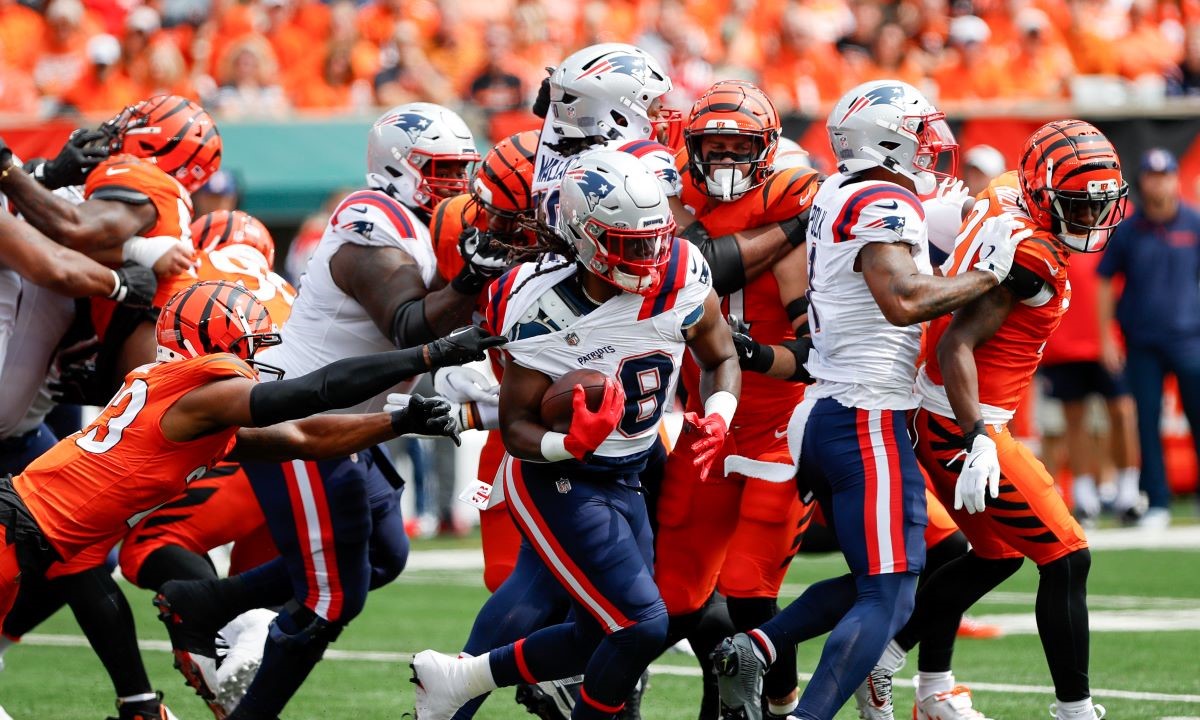From the outset, Jordan Maynard instructed participants at Wednesday’s Massachusetts Gaming Commission hearing on sports wagering limits to maintain decorum.
Billed as one of the most consequential meetings for the industry since the historic PASPA decision, regulated sportsbooks made their case at the Massachusetts hearing on why limits are an integral component of their risk-mitigation framework. Over the past six years, the cat-and-mouse game between operators and sports bettors has represented one of the most intense battles across the marketplace.
When placing an in-game wager, few responses are more infuriating for a bettor than the dreaded spinning wheel as sportsbooks decide whether to accept a bet. A decision by a sportsbook to limit a $100 bet to a sliver of the initial wager can be even more exasperating.
From the sportsbook’s perspective, limits on individual bettors can be a mechanism against syndicates which attempt to outfox the operators by manipulating a line. In many instances, the syndicates employ armies of disparate individuals, or “beards,” to create line movements that enable the groups to capitalize on arbitrage opportunities.
Beyond syndicates, individual customers caught in the crosshairs have run to state regulators asking for relief. As a parallel analogy, a customer who places a buy order with 1,000 shares of Nvidia will not be pleased if the order is knocked down to a single micro-share.
Regulators in Massachusetts have taken up a byzantine case where a compromise may be difficult to attain.
"We are really looking for fair and equitable solutions for some of the patrons who are having an issue with this," said Maynard, who serves as the interim chair of the MGC, which is the first jurisdiction to hold a public hearing on sports wagering limits since the PASPA decision.
The Backdrop
The MGC held Wednesday's hearing nearly four months after it invited the nation's largest sportsbooks to appear at a roundtable on the subject. Several top operators contacted the MGC in writing, informing the commission that they felt uncomfortable discussing "proprietary information" in a public setting.
A host of industry heavyweights skipped the meeting, leaving Bally's as the lone attendee. (Bally Bet is not a licensed sportsbook in the Bay State.) By June, the MGC reiterated its position on holding the meeting in public, citing its obligation to comply with state open meetings law.
Wednesday's discussion opened with a question on the process for setting betting limits on customers in general and why a sportsbook may limit a certain individual. Representatives from BetMGM asserted that the operator only limits about 1% of its Massachusetts customers, or those that attempt to take advantage of its risk-management framework.
Kudos to @MassGamingComm for providing equal opportunity to both sides of the counter in today's meeting. It was balanced and all sides had their time. They are leading the country in regulating this rapidly evolving market.
So proud to be involved with @bettorsvoice and their…
— SigmaSquirrel (@SquirrelSigma) September 11, 2024
There's not a "one-size-fits-all" description of "advantage bettors," according to Sarah Brennan, senior director of compliance at BetMGM. However, bonus abusers and customers who engage in irregular betting patterns can be flagged by the operator. By limiting a tiny percentage of bettors, BetMGM can offer competitive lines and products for the majority of its customers, she emphasized.
Cory Fox, vice president of product and new market compliance at FanDuel, echoed Brennan's sentiments. The ability to limit certain bettors allows FanDuel to offer better prices on more markets, which in turn keeps bettors from heading to "unregulated markets," he emphasized.
Meanwhile, Fanatics rejected the premise that sportsbooks only limit winning customers. Alex Smith, vice president of regulatory affairs at Fanatics Sportsbook, told the MGC that about half of its limited customers were categorized as losing customers at the "time of being limited." Furthermore, about 90% of winning customers are not limited, he added.
While Caesars indicated that it may limit certain bettors, casual ones almost never hit the sportsbook's limits, according to Chief Operating Officer Ken Fuchs.
'I Do Not Sense They Are Going Away'
After a short break, the MGC heard from a bevy of patrons, responsible gambling advocates and proprietors of alternative sportsbook models.
Richard Schuetz serves as the CEO of American Bettors' Voice (ABV), a new sports gamblers' advocacy group formed over the summer. Schuetz called on the MGC to use its regulatory authority to obtain historical data on bettor limits. By then, the sportsbook reps had already left the hearing and did not have the opportunity to respond.
"I am most impressed by the MGC; they have taken the lead in working to address the reality of modern online sports betting and have indicated they have no plan to sit on the sidelines," Schuetz told Action Network. "I find their curiosity refreshing, and they should not be taken lightly, for I do not sense they are going away."
Adam Robinson, a board member at ABV, followed Wednesday's virtual hearing from afar. Robinson offered suggestions on further questions that could be posed to operators in a subsequent meeting. Suppose a customer has a "better model" than a sportsbook — why is that something that would get him limited? Shouldn't this make your lines "sharper?" For "advantage bettors," who modify their tendencies, will the operators consider removing the limits if they meet a certain standard?
Other suggestions include requirements on operators to post their limits on every market. Captain Jack Andrews, co-founder of Unabated, believes that most customers are not clamoring for "limitless betting," but rather "fair limits."
2️⃣Second, books should be allowed to create a restricted limit for players they deem necessary and a VIP limit also for customers who they deem can afford to play higher stakes.
20% of the posted limit for restricted bettors.
200% of the posted limit for VIP bettors.— Captain Jack Andrews (@capjack2000) September 11, 2024
Also this week, Truist Securities explored online sports betting pricing trends with a renowned data expert for the start of the football season. A gaggle of quants are sharpening their focus on the metrics in light of Illinois' new progressive tax structure on sports betting revenue.
On a long-term basis, HoldCrunch doesn't believe that odds will be commoditized through artificial intelligence and machine learning. Given the unpredictable nature of sports, there will be a continued demand for human traders, notes HoldCrunch CEO Tom Johnson. While BetMGM's trading team determines whether to limit certain players, the company's deputy general counsel, Jeremy Kolman, is unsure of the role A.I. plays in the decision-making process.
Moving Forward
Before concluding the meeting, MGC Commissioner Eileen O'Brien asked the guests if they had any recommendations on how to proceed moving forward.
Joe Brennan Jr., executive chairman at Prime Sports, responded that if regulated operators continue to limit bettors, what is the "alternative" for customers? Prime Sports, which is not a Massachusetts licensee, favors a high-limit, open sportsbook format in an attempt to maximize liquidity pools.
Close observers of Wednesday's hearing mostly agree that persistent, unfavorable conditions for bettors could drive customers to the offshore market. Those sportsbooks operate in an unregulated environment without requisite "Know Your Customer and Anti-Money Laundering checks" that provide customers safeguards, said Brendan Bussmann, managing partner at B Global Advisors. Massachusetts regulators may also need more data on the scope of customers being limited before crafting a proposed framework.
"Today’s hearing was over a percent of a percent where operators provided information that was better suited for an executive session on their due diligence process on players tendencies," Bussmann told Action Network on Wednesday. "It’s clearly an issue for the regulator, but I am unsure where this goes from here."
The MGC has not formally scheduled another hearing on the matter, spokesman Thomas Mills told Action Network. The commissioners could brief the staff on the ensuing steps it plans to take at the MGC's next agenda-setting meeting.
“I know that patrons and those who follow the commission’s work are eager for quick determinations, but we are a deliberative body," said Maynard. "We will not sacrifice getting an issue right just for expediency's sake."



















































